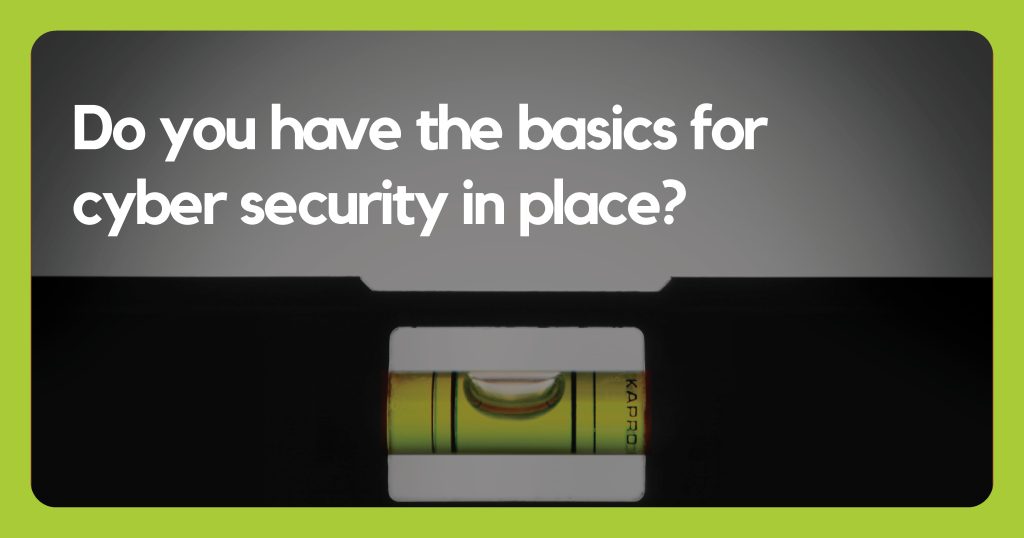Cyber security – Do you have the basics in place?

Cyber security – Do you have the basics in place?
Cyber security has become a critical aspect of business survival and growth. Business owners must recognise the escalating threat of cyber-attacks. The risks associated with data breaches, ransomware, and other cyber incidents are costly and can damage a company’s reputation and customer trust. The increasing frequency and sophistication of cyber threats have made businesses of all sizes vulnerable targets.
Ignoring cyber security exposes sensitive customer and proprietary information to potential breaches, leaving the entire business ecosystem susceptible to disruption. As technology advances, so do cyber threats. So are you doing at least the minimum cyber security to support your organisation?
Here’s a list of 10 Cybersecurity Basic things you should be doing right now that won’t cost a dime.
1. Multi-Factor Authentication (MFA):
Activate MFA for all your business accounts, including email, cloud services, and banking portals. This powerful feature adds an extra layer of protection by requiring a second verification form (like a code sent to your phone) before granting access.
2. Regular Password Updates:
Encourage your employees to change their passwords frequently. Strong, unique passwords are essential, and combining this with regular updates significantly reduces the risk of unauthorised access.
3. Employee Cybersecurity Training:
Invest time educating your staff about cyber threats and best practices. Human error is a common vulnerability, but knowledge is a potent defence.
4. VPN (Virtual Private Network):
Utilise a VPN when accessing sensitive information remotely. VPNs encrypt data, shielding it from potential eavesdroppers and enhancing the overall security of your communications.
5. Patch and Update Software:
Keep all your software, including operating systems and applications, up to date. Regularly applying patches ensures you benefit from the latest security fixes.
6. Backup Your Data:
Implement a reliable data backup strategy. Regular backups protect your business from data loss due to cyber-attacks or system failures.
7. Restrict Administrative Privileges:
Only grant administrative access to employees requiring it. This minimises the risk of accidental system changes or malicious activities.
8. Secure Wi-Fi Network:
Set up a strong Wi-Fi password and utilise WPA3 or WPA2 encryption protocols to prevent unauthorised access to your network.
9. Firewall Configuration:
Enable the built-in firewall on your Windows system. Firewalls are a barrier between your network and potential threats, blocking unauthorised traffic.
10. Email Security Measures:
Train your team to identify phishing attempts and other suspicious emails. Implementing email filters and sender verification mechanisms can also add a layer of protection.
Remember, cyber security is an ongoing process, not a one-time fix. Regularly assess your security measures, stay informed about emerging threats, and adapt your defences accordingly.
By taking these proactive steps, you’re safeguarding your business’s reputation and demonstrating your commitment to customer trust and data protection.
